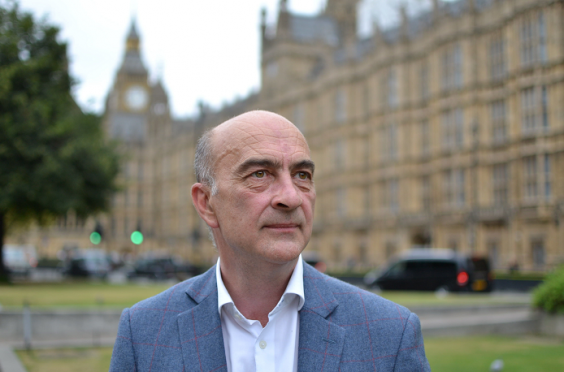There’s something we need to talk about.
In 2015 the Scottish Government produced its Scottish Health Survey. Although conducted regularly, it included a specific chapter on mental health for the first time.
That in itself tells a story.
The history of man had been one where mental health was a topic too far. It was too uncomfortable for polite conversation. It was not understood, or perhaps too close to home for too many? Eyes turned blind. Ears were deaf. Minds were closed. Physical health mattered but mental health was ignored. It bore a stigma.
But times have changed. Attitudes are changing. Understanding is growing.
Who reading this doesn’t know somebody who, at sometime or another, has suffered from anxiety, depression or worse?
Indeed, according to the health survey one in five of us are, right now, displaying one or more symptoms of depression. One in 10 of us, right now, have two or more symptoms. It is not something which just happens to others. It is about us, our family and our friends.
So farewell to the days when, if you felt a bit down, you were just told to grin and bear it. Toughen up, son. Stop complaining. Pull yourself together.
Gone too are the days when those with more severe issues were simply locked away and forgotten. Out of harms way and out of the public gaze.
At long last we can talk about mental health issues. And we should. The survey reveals why.
In it, the proportion of adults who self reported to having ever attempted suicide was 6%. More than one in 20 of the population haven’t just considered suicide, but have actually attempted to end their own lives. You will know some of them. You probably don’t know who.
That astonished me and opened my eyes to the sheer scale of the problem.
There are around 4.5 million adults in Scotland. In 2014-15 nearly 20% were prescribed antidepressants. That’s 814,181 people. If you are one of them, or one you love is, you and they are not alone.
So the question is how we as society, as families, and as friends should respond?
We put our GPs front and centre of the effort to deal with the issue as we do with so many health matters. The solution tends to be understanding, followed by prescription as a first resort.
By comparison in Norway, a country with a similar population, the proportion taking antidepressants is only 6%. A third of Scotland’s rate.
There, drugs are not the default response but the second line of intervention.
Instead, social prescribing and therapy is tried first. Social prescribing is a way of linking people with sources of support within their community. It is linked to social therapy and is about helping people face their problems and find strategies to cope with them. From knitting clubs to fishing clubs, and most things in between.
That’s not to say that medicine is rejected, but an attempt to deal with the underlying issues and causes of mental illness is seen as the better way. Finding support and understanding and places we can talk, and listen, and share. Understanding, friendship, and care.
Social prescribing has been described as a “more than medicine” approach. Schemes do operate in the UK and in a recent survey of 1,000 doctors, 4 out of 5 thought they should be able to prescribe it.
Indeed, Jeremy Hunt, the English Health Secretary, made a commitment 18 months ago to make social prescribing a normal part of a GP’s job in England. His aim is to break down the barriers so that social prescribing becomes as routine as medical prescribing is today. But across the UK, we still have a long way to travel.
So what now?
Well let’s start by having the debate. Lets discuss why it is an estimated fifth of a GP’s time is spent with patients discussing their social problems such as debt and housing, but half of GPs have no contact at all with social care providers.
Let’s look at the study which shows that if a range of social and welfare advice is located in primary care settings then there is a dramatic reduction in time needed with GPs and repeat appointments and prescriptions.
Let’s empower GPs to take a more holistic approach.
Let us here, in Scotland, take a good hard look at the evidence. Let’s find new ways and be prepared to embrace new ideas. Let’s ask ourselves whether drugs should be the first line of intervention, or, as in Norway, is there another way?
Is it time to embrace social prescribing and admit that drugs must not be the first and only response, but should play a supporting role or merely be a bridge to other solutions?
And let’s accept that mental health is not a no-go area. It involves every family in the land.
Let’s find the will to listen, and recognise that it is good to talk.
